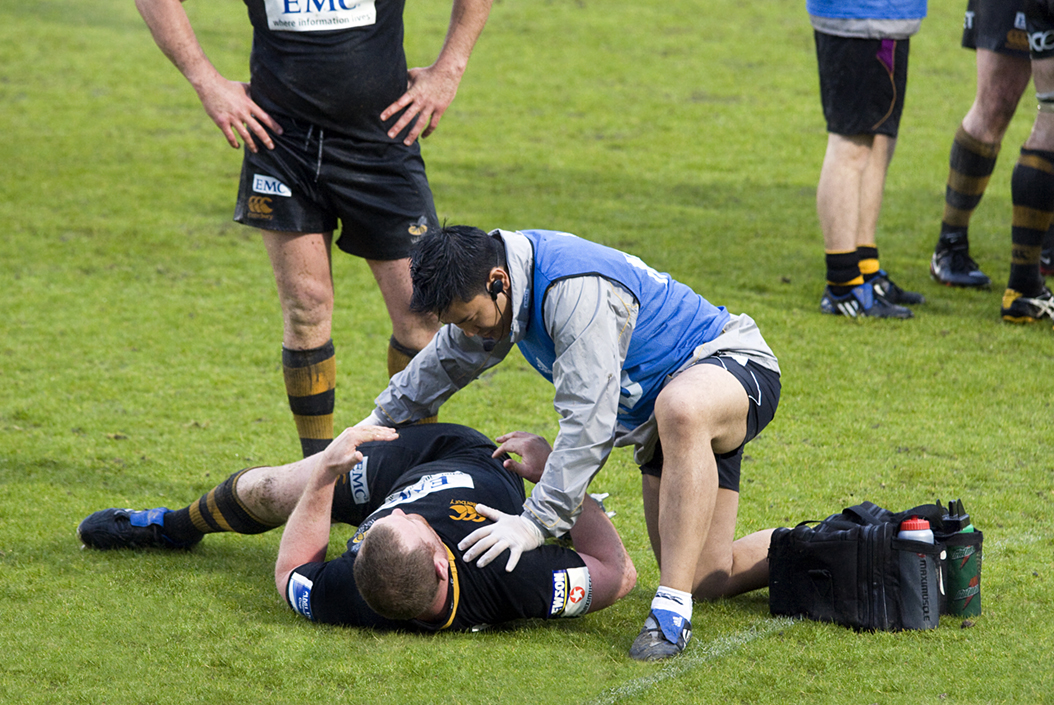
 CITY PHYSIO CARE
CITY PHYSIO CARE ADDRESS: Huda road,Kaithal
DESCRIPTION
PRODUCTS & OFFERS
Products : 0
Offers : ![]() 0
0
GOOGLE MAP LOCATION
Huda road,Kaithal..
OUR WEBSITE
Add a website link to explore more
TRACKING PROGRESS
Download Jaadu Can Do App to See
PROMOTE YOUR BUSINESS ON
FOLLOW US ON
RATING AND REVIEWS
4.8 5 Ratings And 4 Reviews
START YOUR REVIEWS
RECENT RATINGS
5.0 4.5 5.0 5.0 4.5
Best service in Kaithal. I will recommend to others. Very Good Services overall and humble behaviour. Thank you.
Top Physiotherapist Business. Top in our village. Everyone can find this anytime in google first page
I think everyone have to take a chance to check the service quality.
SEARCH US IN GOOGLE BY BELOW
physiotherapist in kaithal physiotherapy service kaithal physiotherapy home service kaithal City Physio Care
Physiotherapists in : A Comprehensive Guide
What is Physiotherapy?
Physiotherapy, also known as physical therapy, is a healthcare profession focused on the assessment, diagnosis, and treatment of movement disorders. It helps individuals regain mobility, reduce pain, and improve overall physical function through specialized exercises, manual therapy, and other therapeutic techniques.Role of Physiotherapists in Healthcare
Physiotherapists play a vital role in the healthcare system by:- Assisting in rehabilitation post-surgery or injury
- Managing chronic pain and musculoskeletal disorders
- Improving mobility and function in patients with neurological conditions
- Enhancing respiratory function in patients with pulmonary diseases
- Supporting pediatric and geriatric populations with mobility issues
- Providing guidance on injury prevention and physical fitness
Benefits of Physiotherapy
- Pain Relief: Reduces chronic and acute pain without reliance on medication- Improved Mobility: Helps restore movement and flexibility
- Rehabilitation: Aids in recovery from surgeries and injuries
- Enhanced Balance and Coordination: Reduces fall risks, especially in the elderly
- Posture Correction: Helps correct bad posture, reducing strain on muscles and joints
- Improved Respiratory Function: Beneficial for asthma, COPD, and post-COVID recovery
- Sports Performance: Helps athletes recover and improve their fitness levels
Types of Physiotherapy
1. Neurological Physiotherapy: Focuses on patients with neurological disorders like stroke, Parkinson’s disease, multiple sclerosis, and spinal cord injuries.2. Respiratory Physiotherapy: Aids in the treatment of lung conditions like asthma, bronchitis, and chronic obstructive pulmonary disease (COPD).
3. Pediatric Physiotherapy: Addresses developmental disorders, cerebral palsy, and musculoskeletal issues in children.
4. Geriatric Physiotherapy: Focuses on age-related conditions such as arthritis, osteoporosis, and balance disorders.
5. Sports Rehabilitation: Helps athletes recover from injuries, prevent future injuries, and enhance performance.
6. Orthopedic Physiotherapy: Manages conditions affecting bones, muscles, and joints such as fractures, sprains, and post-surgical rehabilitation.
7. Cardiac Physiotherapy: Aids in heart disease recovery and improves cardiovascular health through guided exercises.
How Does Physiotherapy Work?
Physiotherapy works by utilizing various techniques such as:- Manual Therapy: Hands-on techniques like joint mobilization and soft tissue manipulation
- Electrotherapy: Use of electrical stimulation for pain relief and muscle strengthening
- Therapeutic Exercises: Personalized exercise plans to improve strength and flexibility
- Hydrotherapy: Water-based exercises that reduce strain on joints
- Ultrasound Therapy: Uses sound waves to promote tissue healing and reduce inflammation
- Postural Training: Improves posture to prevent musculoskeletal issues
Conditions Treated by Physiotherapy Clinics
- Musculoskeletal disorders (back pain, arthritis, frozen shoulder, sciatica)- Sports injuries (ACL tear, tennis elbow, shin splints)
- Neurological conditions (stroke, spinal cord injuries, multiple sclerosis)
- Cardiopulmonary disorders (asthma, COPD, post-heart surgery rehabilitation)
- Pediatric conditions (cerebral palsy, delayed motor development)
- Post-surgical rehabilitation (joint replacement, ligament repair)
Benefits of Seeing a Physiotherapist
- Provides drug-free pain relief- Prevents injuries and promotes faster recovery
- Improves strength, flexibility, and endurance
- Helps manage chronic conditions effectively
- Enhances quality of life for patients with mobility issues
How to Find a Good Physiotherapist in Karnal
- Qualifications: Ensure they have a degree in physiotherapy and necessary certifications- Experience: Look for a therapist with experience in treating your specific condition
- Specialization: Choose a physiotherapist specializing in your required area (sports, neurology, orthopedics, etc.)
- Reputation: Check reviews, testimonials, and recommendations from patients
- Facilities: A well-equipped clinic with modern therapy equipment is essential
- Location: Preferably choose a clinic that is easily accessible from your home
Physiotherapy Treatment Process
1. Initial Assessment: The physiotherapist evaluates the patient’s medical history, physical condition, and pain level.2. Diagnosis: Identification of the root cause of the issue.
3. Treatment Plan: A personalized therapy plan is created based on the diagnosis.
4. Therapy Sessions: Execution of planned therapies, exercises, and techniques.
5. Progress Monitoring: Regular assessments to track improvement and adjust treatments accordingly.
6. Home Exercises: Patients are often given exercises to continue at home for sustained recovery.
Impact of Seasons on Physiotherapy
- Winter: Cold weather can worsen arthritis and joint pain, requiring more therapy sessions.- Summer: Hot weather helps muscles relax, making stretching and rehabilitation easier.
- Monsoon: Increased humidity can cause stiffness in joints, leading to more frequent therapy needs.
- Spring & Autumn: Moderate temperatures provide optimal conditions for physiotherapy recovery.
Conclusion
Physiotherapy is a crucial part of healthcare, offering numerous benefits for individuals with musculoskeletal, neurological, and respiratory conditions. Physiotherapists in Karnal provide expert treatment and rehabilitation services to help individuals regain movement, relieve pain, and improve their quality of life. Choosing a qualified physiotherapist with experience in your specific condition ensures the best possible recovery outcomes.MOSTLY SEARCHED
Best Sarees Collection | South Indian Restaurant | Dental Clinic in Kaithal | Best Dental Hospital IN Karnal | Gift Shop | Home Appliances Discount | Electrical shop in kaithal | Travel agency in karnal | Bridal Jewellery on rent Karnal | Tattoo Artist Near Me | Property Dealers in Karnal | Interior Decorators in kaithal | Top Make Artist | Ayurvedic Clinic in Karnal | Pizza Delivery Panipat | Top modular kitchen Panipat | Deluxe Room Panipat | Cake Delivery Karnal | Lehenga on rent Kaithal | Beauty Products | Ladies Suit | Taxi Service in Kaithal | Beauty Academy | Beauty Academy | Kids Toys | Best Physiotherapist | Best Architect | DHL Courier | Test Laboratory | Readymade Doors and Windows
 Whatsapp
Whatsapp

